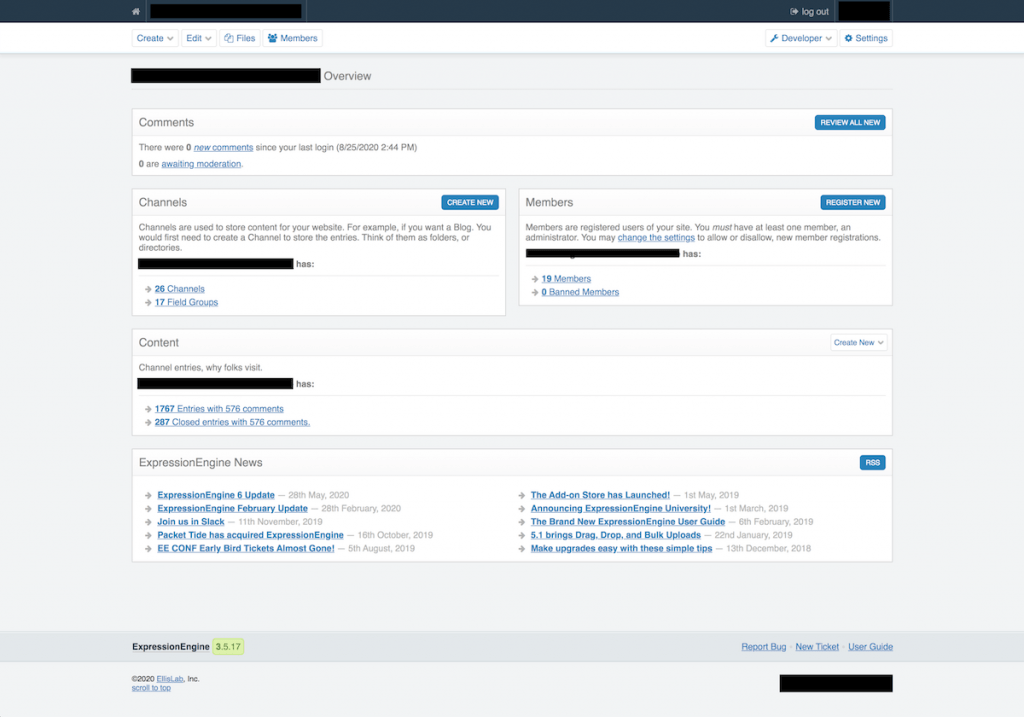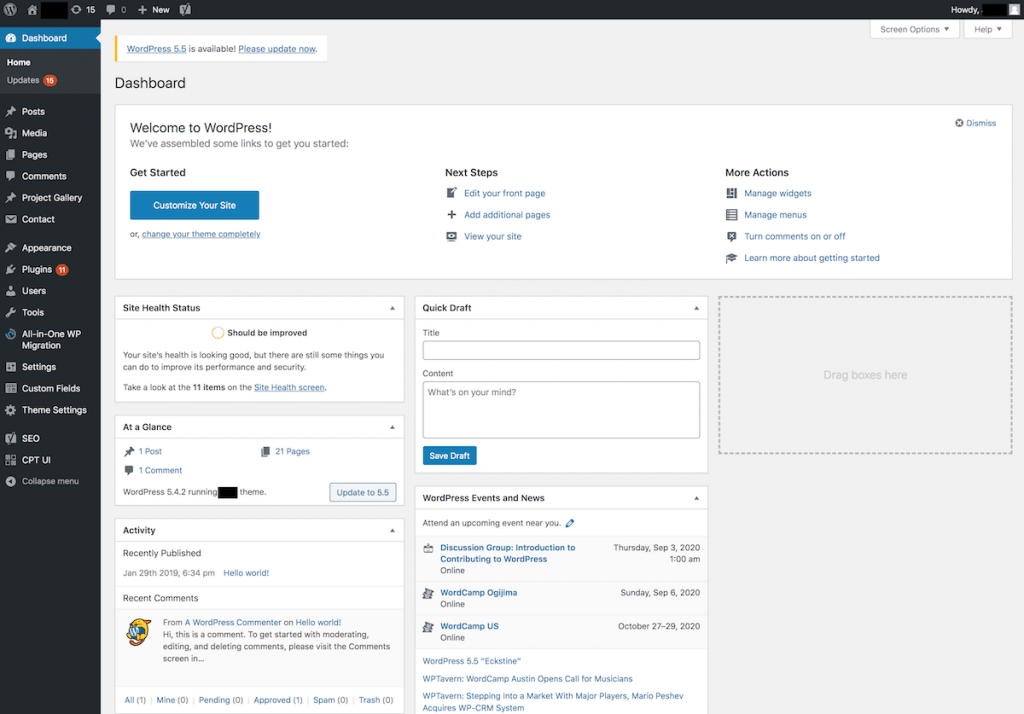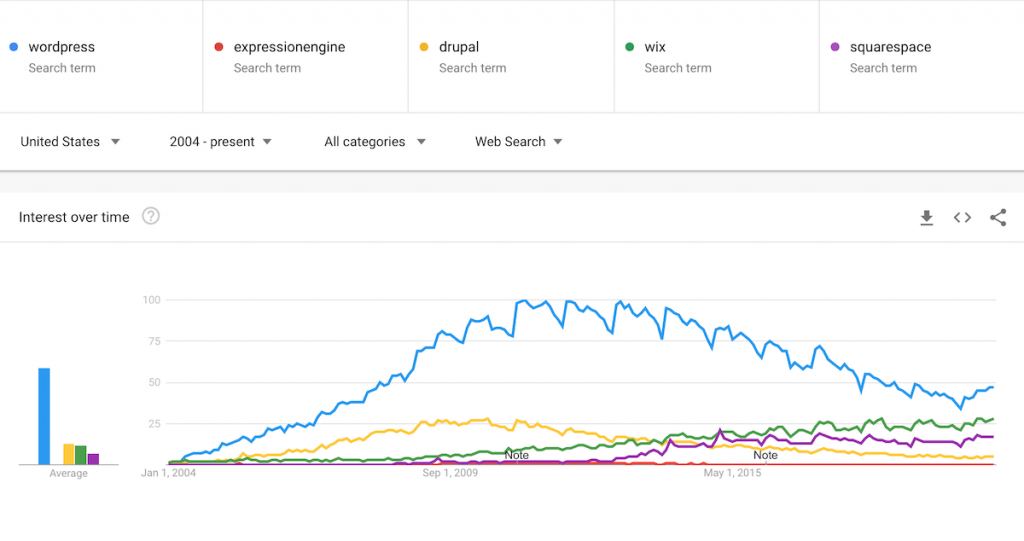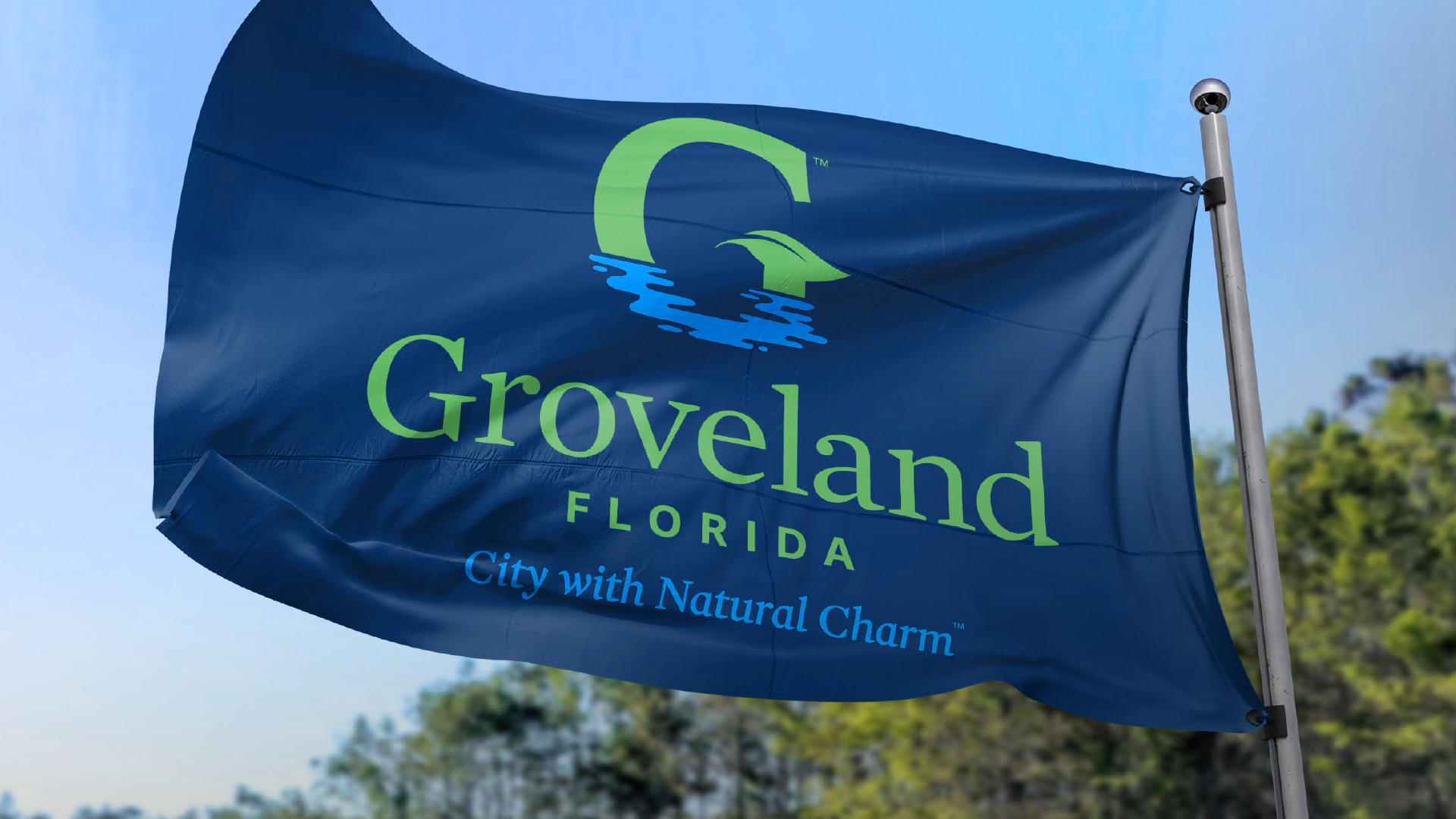10.01.20
Should Your ExpressionEngine Site Make the Switch to WordPress?
These are tumultuous times, but one consistency that we can always depend on is that technology evolves quickly. Just ask yourself: what kind of cell phone did you have 10 years ago? Just as you likely acquired and replaced much of your personal technology over the last decade, your customers have as well. Has your business’s website evolved to reflect how customers browse the web?
Here at Alarie Design, we are constantly learning about the latest techniques and technologies to best serve our clients. When we first started building websites, we adopted ExpressionEngine because it was an established product, while WordPress was still in its infancy. However, we recently made the push to build websites exclusively with WordPress. But what is ExpressionEngine, what is WordPress, and should you make the switch to WordPress?

What is ExpressionEngine?
ExpressionEngine is a CMS, or content management system, that was first introduced back in 2002. Created by EllisLab under CEO Rick Ellis, it has generated a respectable following for allowing extensive customization (like its “channel” functionality) and its intuitive templating language.
Ownership of the product has changed hands a few times recently. Digital Locations acquired EllisLab back in November 2018. A year later, Digital Locations sold EllisLab back to Ellis, who then closed the company. Packet Tide now owns ExpressionEngine, but many of ExpressionEngine’s third-party add-ons are no longer supported by their respective authors. This makes the future uncertain for many existing sites built with ExpressionEngine.
So should you make the switch to WordPress?

What is WordPress?
WordPress is also a CMS; in fact, it’s the web’s most popular CMS. Much of its popularity comes from its ease-of-use both as a user and as a developer.
It was started just a year after ExpressionEngine in 2003, by founders Matt Mullenweg and Mike Little. What started as a little blogging platform quickly grew into a whole ecosystem of web tools. WordPress now runs on over 60 million websites, and there are over 57,000 plugins available in the official WordPress Plugin Repository, with thousands more paid plugins available outside of the repository. For these reasons alone, many businesses decide to make the switch to WordPress.
At the end of 2018, WordPress released its latest major version: WordPress 5.0. With WordPress 5.0 came Gutenberg, a brand-new content editor which fundamentally changed the way that post/page content is created. Though it was initially met with some hesitation, after hearing the feedback of the early adopters and adapting to their needs, it has been largely embraced by the WordPress community. Just weeks ago at the time of this writing, WordPress 5.5 was released, with even more powerful features added to Gutenberg. This is a great example of how WordPress is continuously evolving – and listening – to make a better product.

Should You Make the Switch to WordPress?
According to W3Techs at the time of this writing, ExpressionEngine runs on 0.2% of all CMS-based websites and 0.1% of all websites. Alternatively, WordPress runs on 63.5% of all CMS-based websites and 38.3% of all websites. Should popularity be the deciding factor when choosing a CMS? Not necessarily, though it should definitely be a consideration. With popularity comes constant updates and helpful, relevant support. That means WordPress is not going anywhere, and you can rest assured that, when you make the switch to WordPress, any issues that arise can be quickly and easily resolved.
Beyond popularity, ease-of-use is a huge factor to consider. Adding, deleting, and editing content is a breeze, and with the new Gutenberg editor, it couldn’t be easier. Plus, with the number of plugins available exclusively to WordPress websites, adding complex functionality can be done surprisingly quickly.
Should you make the switch to WordPress? The short answer is yes; we love WordPress and we know you will too. The long answer is more of a case-by-case basis, but we’d love to discuss your options with you. If you would like to learn more about how your site could grow and attract new customers, let’s chat!
RECENT POSTS

Leverage Social Media Ads to Boost Your Brand’s Visibility and Drive Results

Elevate Conversions with Expert Landing Page Optimization Strategies
